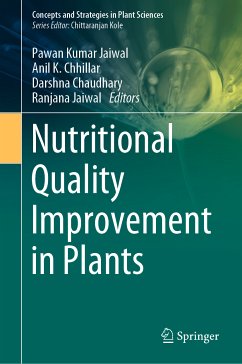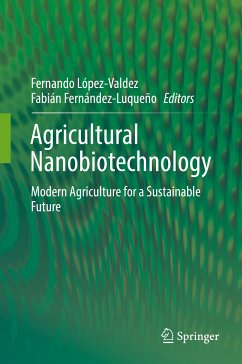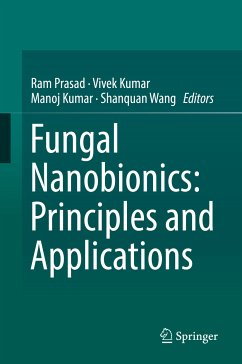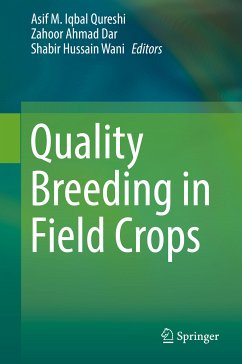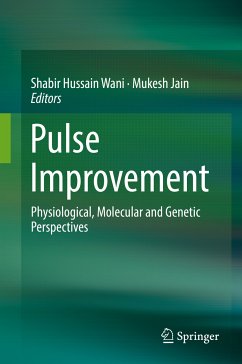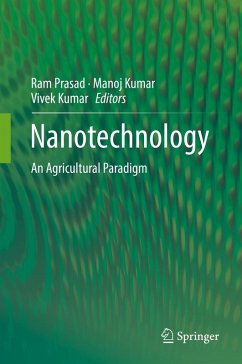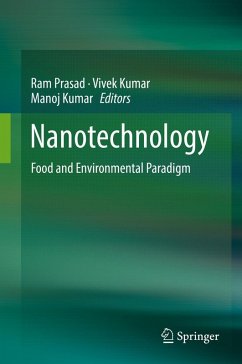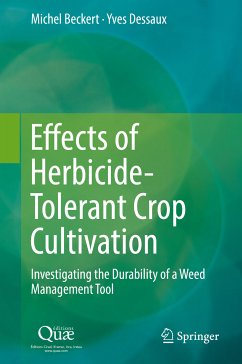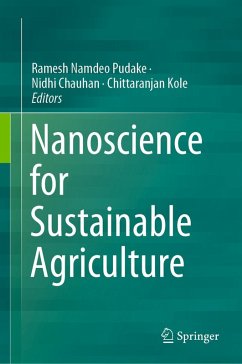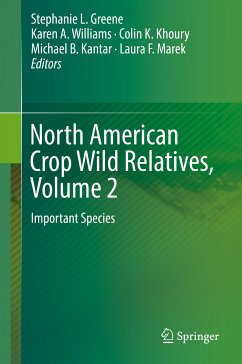
Nanobiotechnology in Bioformulations (eBook, PDF)
Versandkostenfrei!
Sofort per Download lieferbar
112,95 €
inkl. MwSt.
Weitere Ausgaben:

PAYBACK Punkte
56 °P sammeln!
With the recent shift of chemical fertilizers and pesticides to organic agriculture, the employment of microbes that perform significant beneficial functions for plants has been highlighted. This book presents timely discussion and coverage on the use of microbial formulations, which range from powdered or charcoal-based to solution and secondary metabolite-based bioformulations. Bioformulation development of biofertilizers and biopesticides coupled with the advantages of nanobiotechnology propose significant applications in the agricultural section including nanobiosensors, nanoherbicides, an...
With the recent shift of chemical fertilizers and pesticides to organic agriculture, the employment of microbes that perform significant beneficial functions for plants has been highlighted. This book presents timely discussion and coverage on the use of microbial formulations, which range from powdered or charcoal-based to solution and secondary metabolite-based bioformulations. Bioformulation development of biofertilizers and biopesticides coupled with the advantages of nanobiotechnology propose significant applications in the agricultural section including nanobiosensors, nanoherbicides, and smart transport systems for the regulated release of agrochemical. Moreover, the formulation of secondary metabolites against individual phytopathogens could be used irrespective of geographical positions with higher disease incidences. The prospective advantages and uses of nanobiotechnology generate tremendous interest, as it could augment production of agricultural produce while being cost-effective both energetically and economically. This bioformulation approach is incomparable to existing technology, as the bioformulation would explicitly target the particular pathogen without harming the natural microbiome of the ecosystem.
Nanobiotechnology in Bioformulations covers the constraints associated with large-scale development and commercialization of bioinoculant formations. Furthermore, exclusive emphasis is be placed on next-generation efficient bioinoculants having secondary metabolite formulations with longer shelf life and advanced competence against several phytopathogens. Valuable chapters deal with bioformulation strategies that use divergent groups of the microbiome and include detailed diagrammatic and pictorial representation. This book will be highly beneficial for both experts and novices in the fields of microbial bioformulation, nanotechnology, and nano-microbiotechnology. It discusses the prevailing status and applications available for microbial researchers and scientists, agronomists, students, environmentalists, agriculturists, and agribusiness professionals, as well as to anyone devoted to sustaining the ecosystem.
Dieser Download kann aus rechtlichen Gründen nur mit Rechnungsadresse in A, B, BG, CY, CZ, D, DK, EW, E, FIN, F, GR, HR, H, IRL, I, LT, L, LR, M, NL, PL, P, R, S, SLO, SK ausgeliefert werden.



